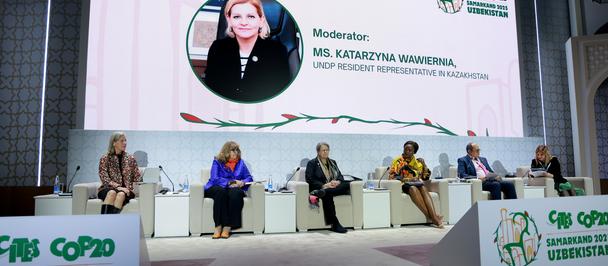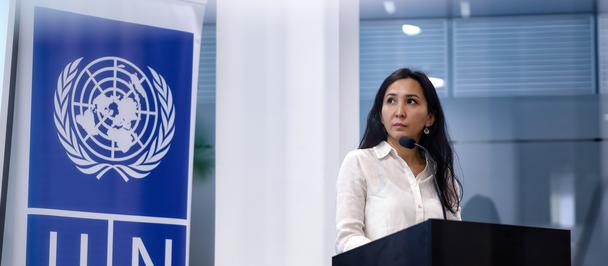Lyudmila V., apiary owner, buzzes with year-round activity
Busy as a Bee
May 19, 2023
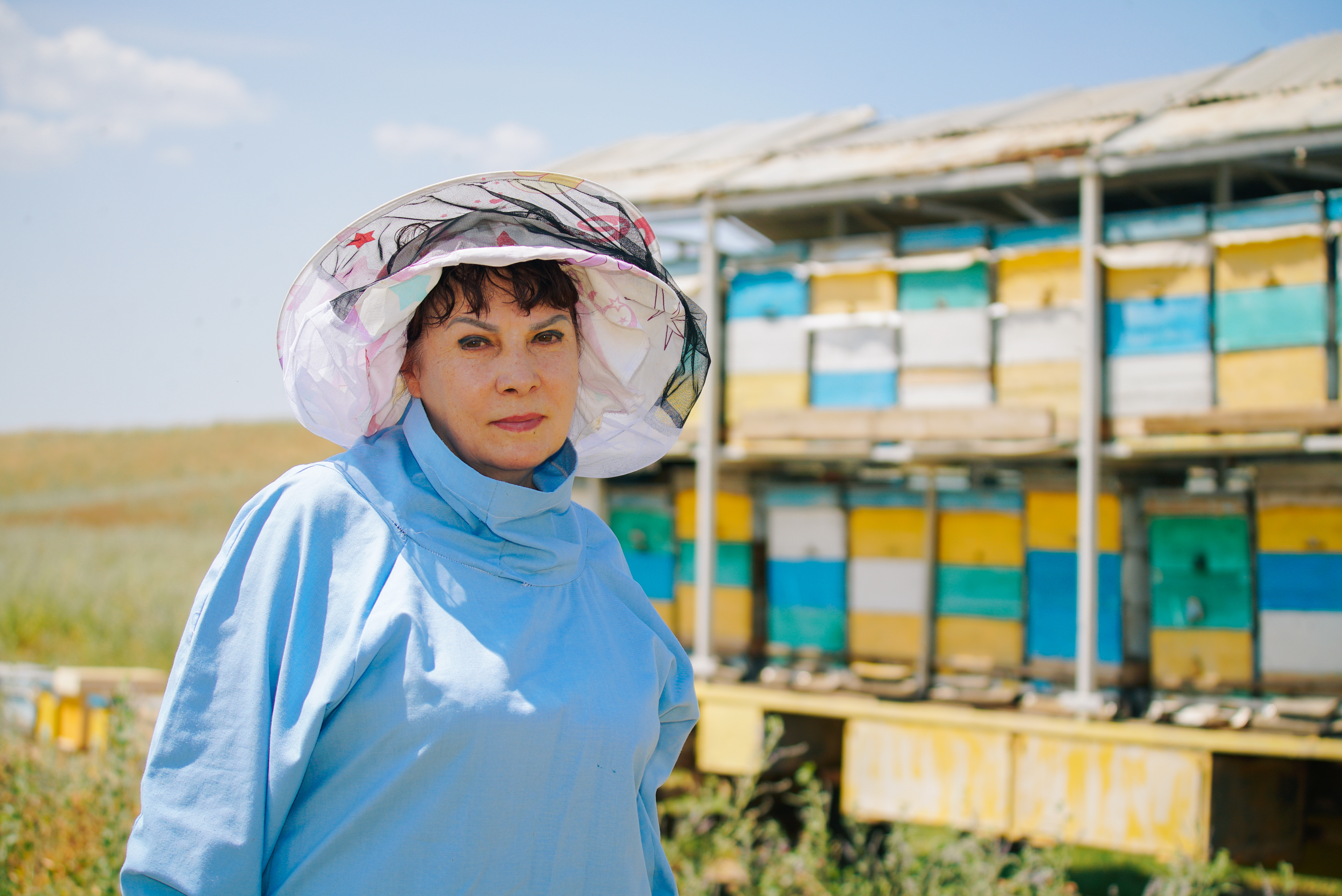
Lyudmila Vysotskaya
Lyudmila Vysotskaya, now in the beekeeping business for four years, owns an apiary in the Turkestan region and 50 bee colonies. Today, she is devoting all her time to bees and pins all her hopes on them.
Lyudmila has a long-standing interest in beekeeping and after retirement, she established a small apiary. Her business experience running a small company manufacturing doors and windows in Shymkent, a city in southern Kazakhstan for 10 years, helped a lot.
"Starting an apiary was a conscious decision, which I’d been planning for many years. I got used to regarding bees as my own children. I know every bee colony. Each one has its own character and order,"says Lyudmila.
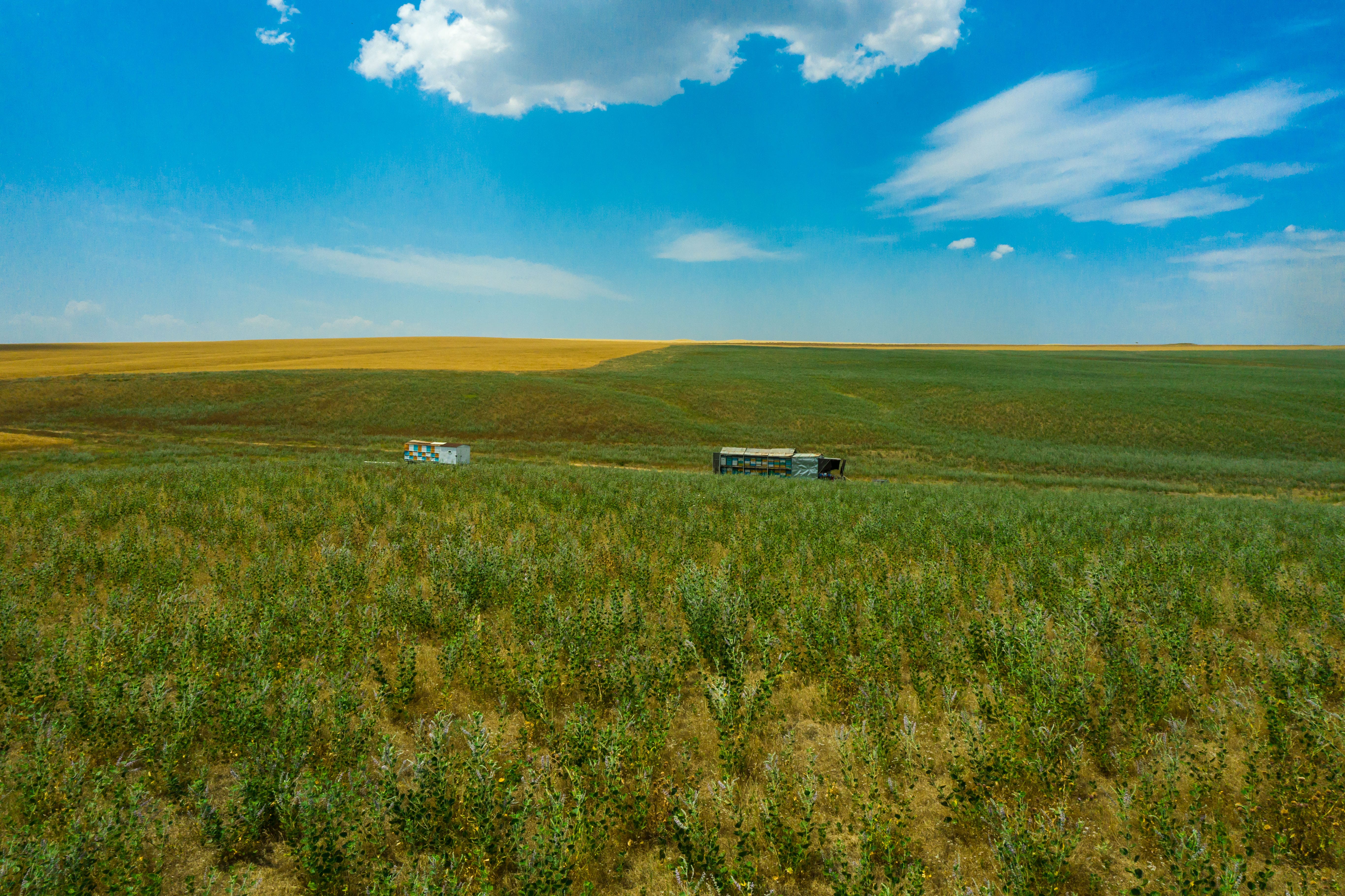
The entrepreneur notes that the Turkestan region is excellent for beekeeping – the relatively warm climate, an early spring, a late autumn, the abundance of herbs and colours – have had a positive effect on the honey harvest and the development of rural businesses.
Growing forage grasses and beekeeping are two areas of agriculture that are not usually related to each other. The presence of a honey base near the hive is a key factor in the successful production of honey. The diversity of crops in the fields can have a huge impact on the success of beekeeping and on feed productivity.
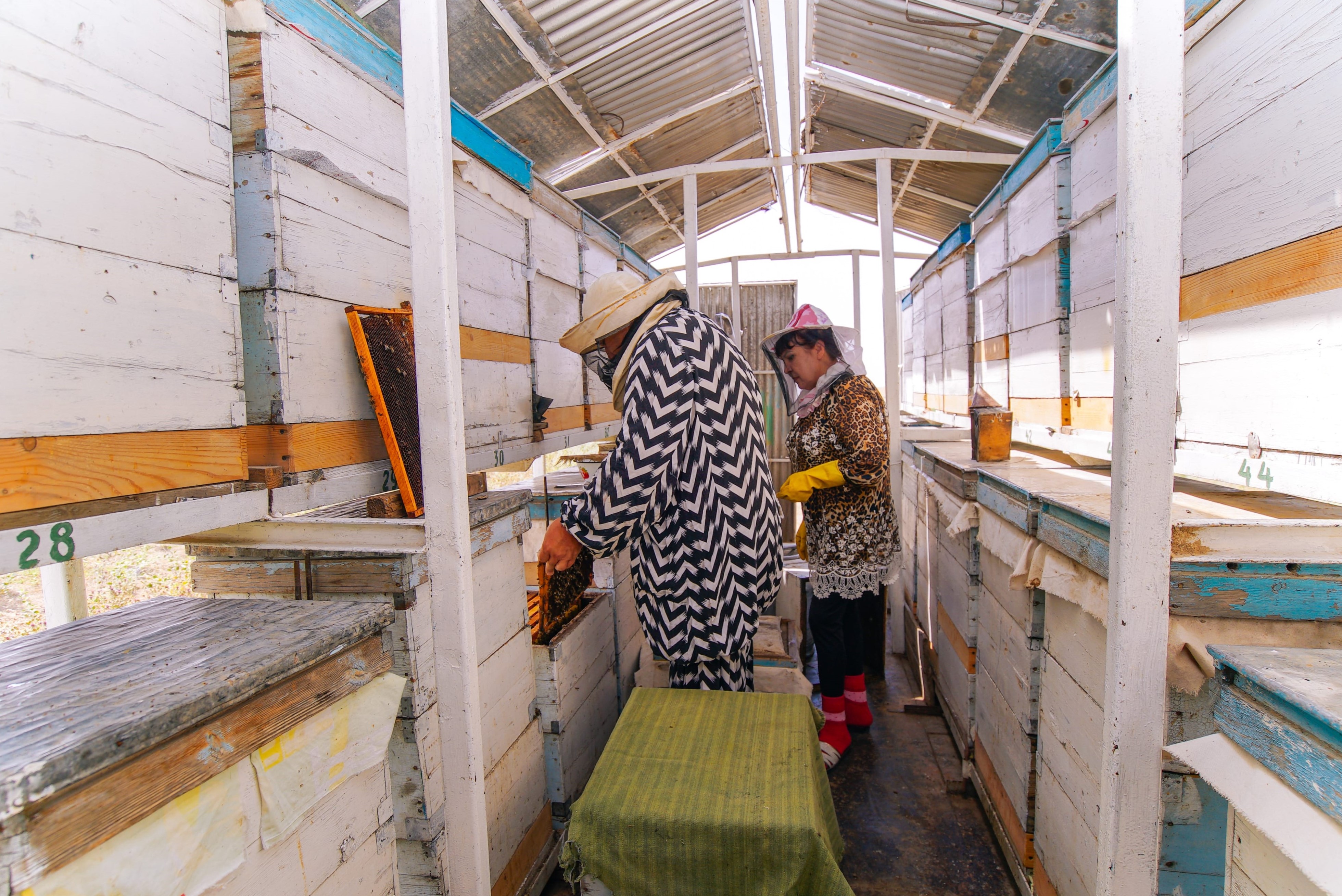
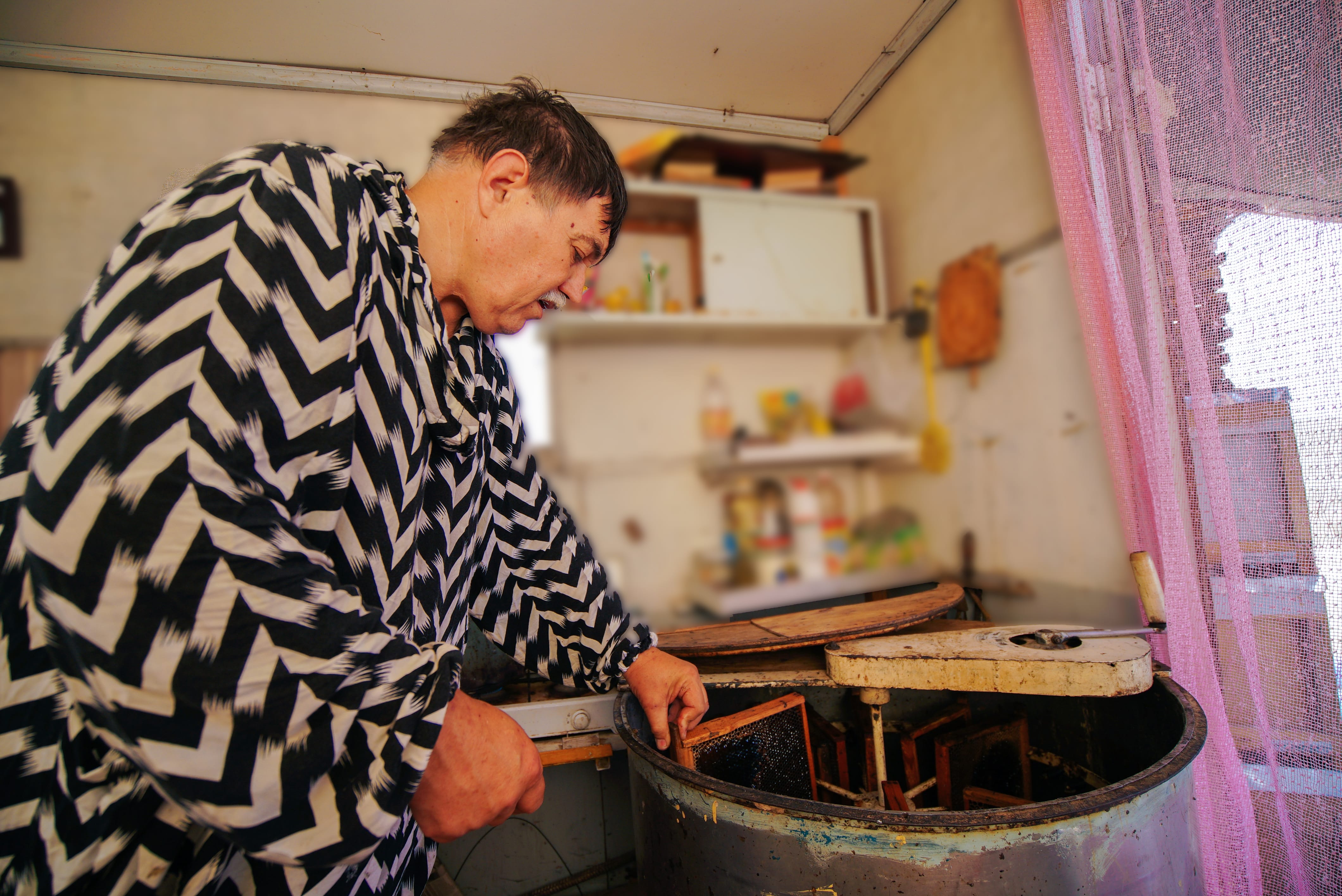
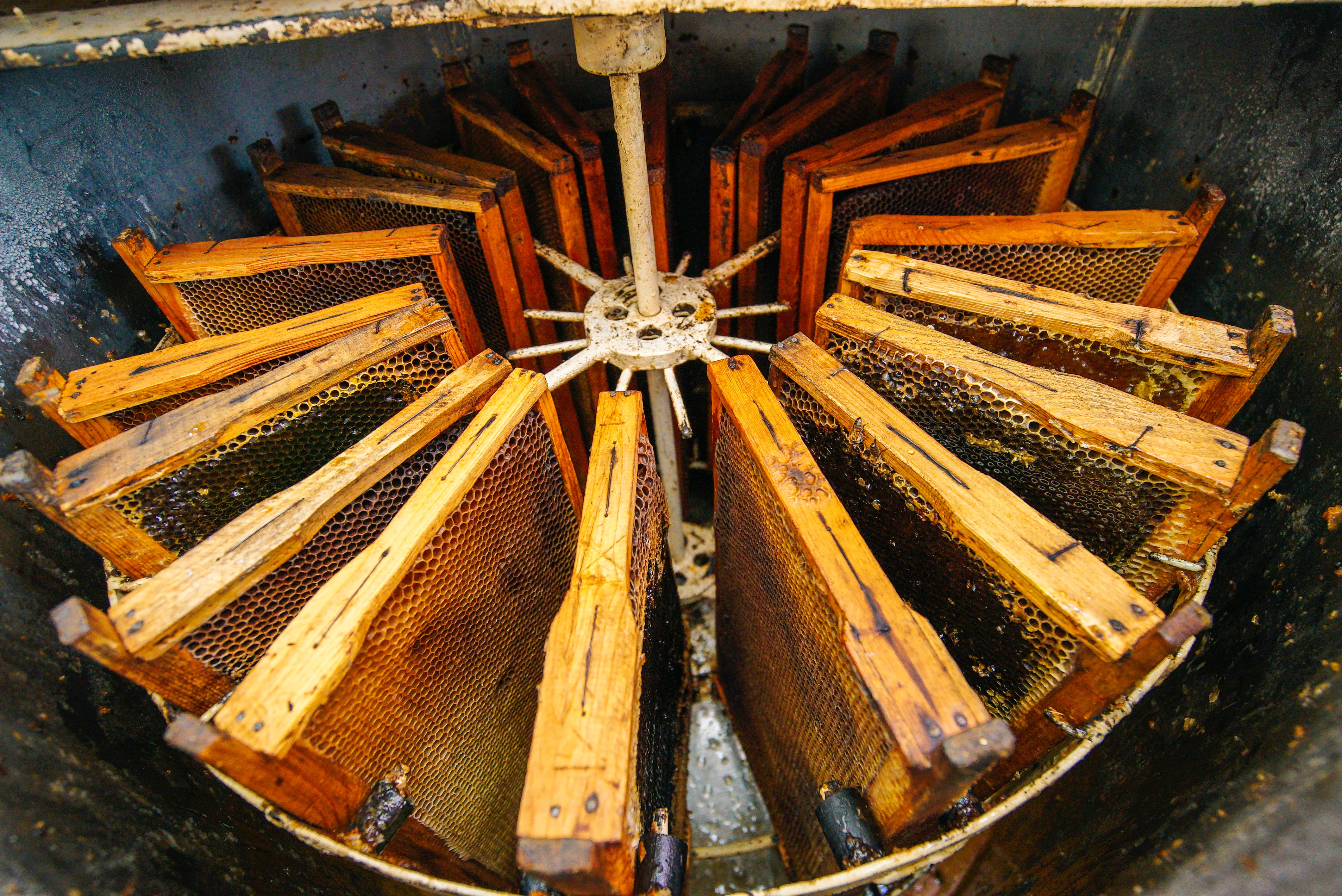
Lyudmila's husband Yuri is her biggest supporter. Together they take care of the bees, prepare them for winter and go on migratory trips. Lyudmila admits that beekeeping is a big responsibility, one requiring a lot of effort and patience. However, this has not deterred her, because bees have a positive impact on the environment, on food security and on people’s health and well-being. In addition, Lyudmila says doing business is much easier with Yuri's support.
"Many people mistakenly think beekeeping is a seasonal business, but it’s not. We take care of our bees and monitor their health all year round,"says Lyudmila.
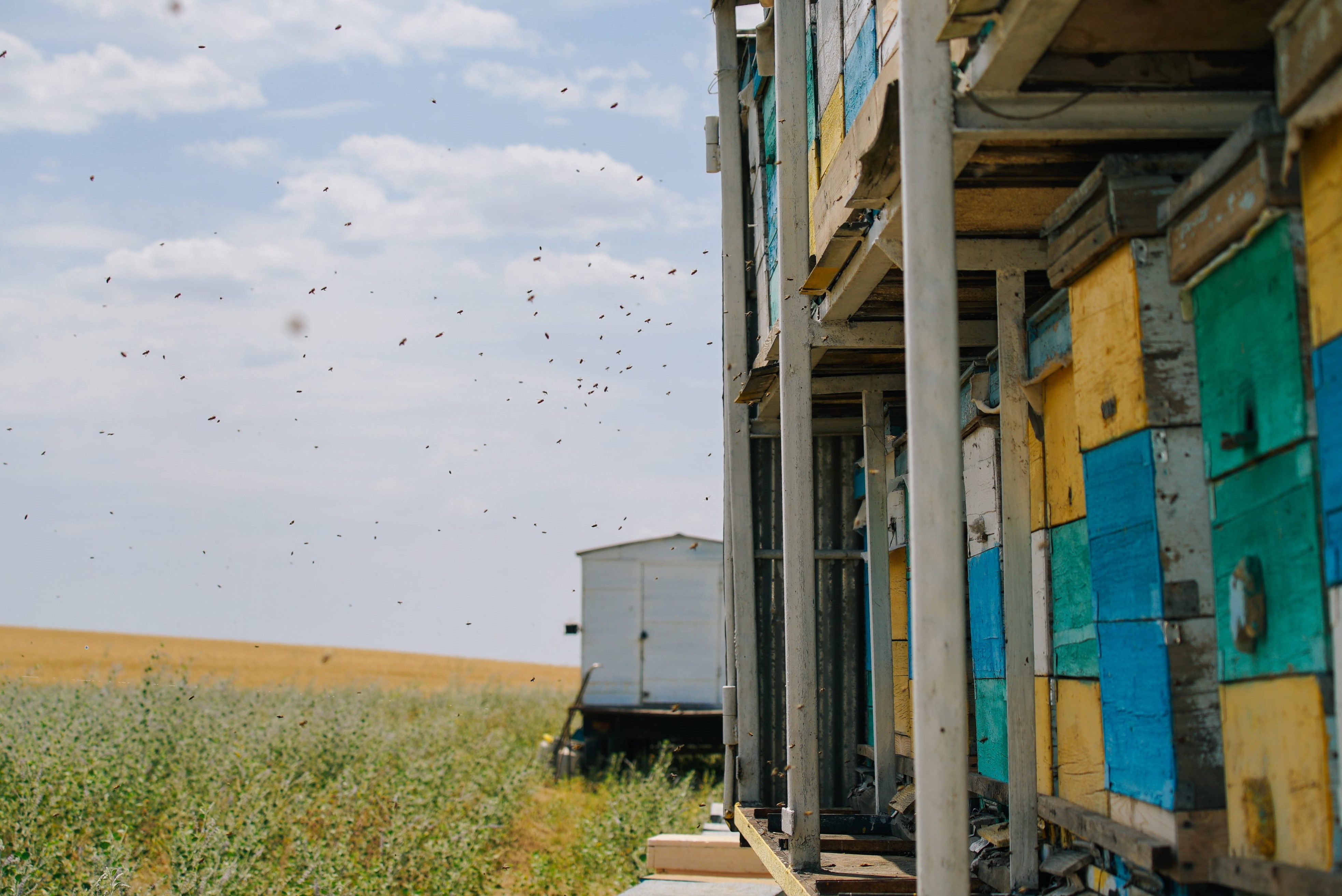
Spring in the south of Kazakhstan begins in early March. At this time Lyudmila and her husband set out to the first apiary in the foothills, as there is a large amount of pollen, which helps the worker bees to grow successfully.
The Vysotsky spouses live at the apiary, while the bees collect nectar and pollinate the plants. Lyudmila notes with regret that many bees fail to survive until spring as they are sensitive to temperature and humidity extremes. Therefore, proper preparation for winter is very important: this means insulating the hives, feeding the bees.
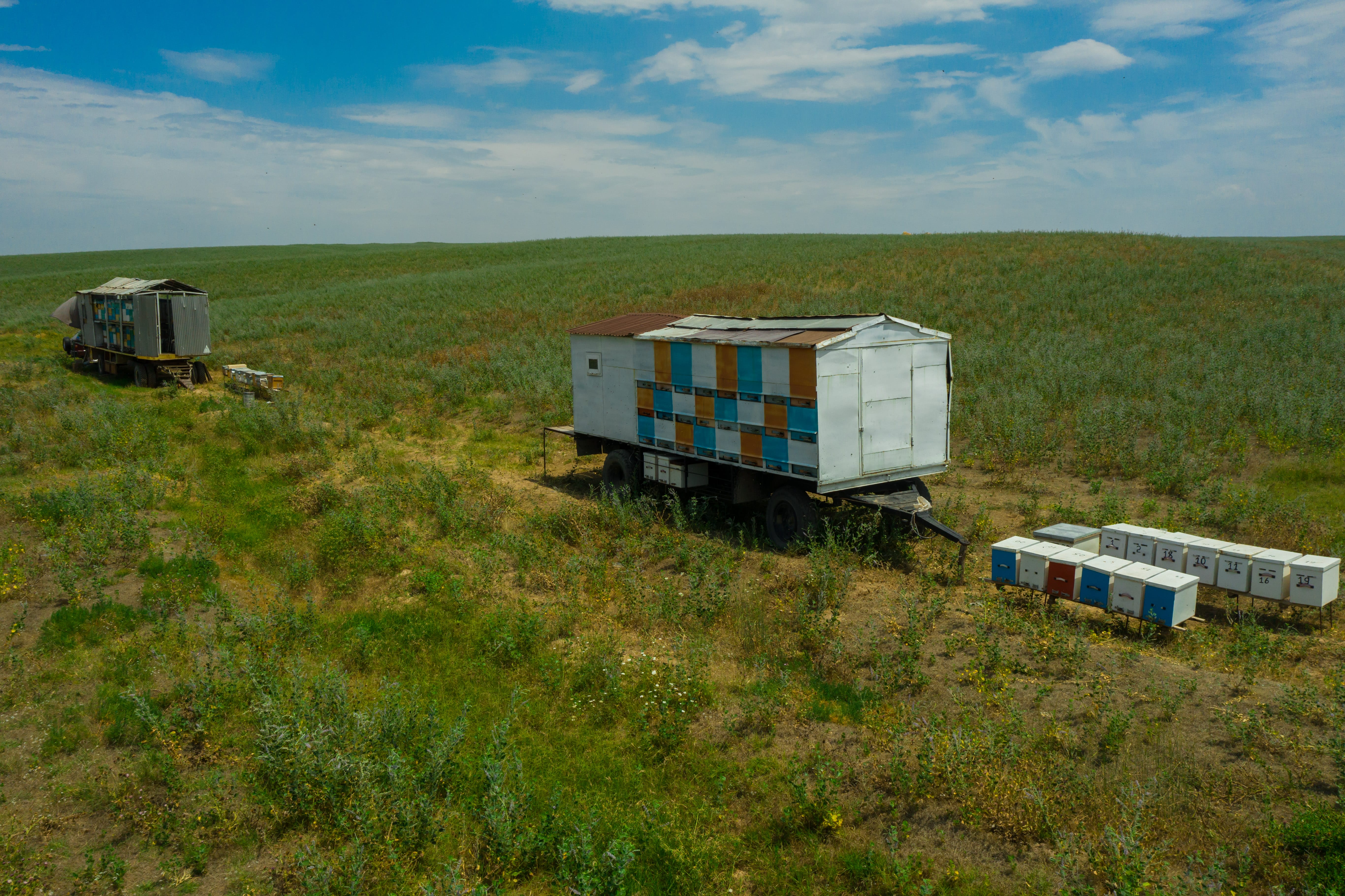
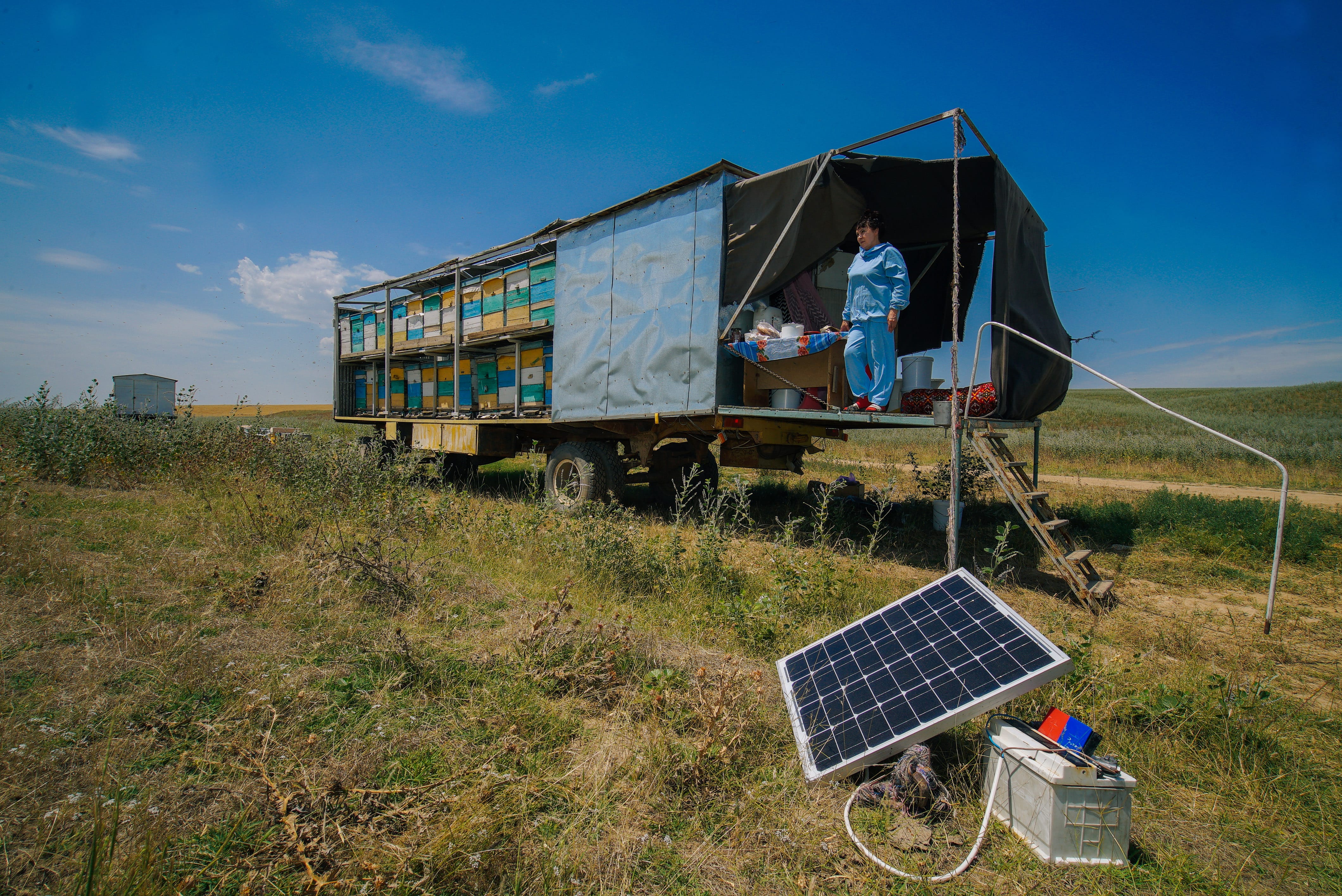
But starting your own business requires financial investment, and Lyudmila understood that. She had to buy high-quality equipment, materials and also the bees themselves.
Keeping this in mind, in 2021 Lyudmila decided to participate in the Eco-Damu Loan Programme, which was designed to support rural entrepreneurs interested in launching a "green" type of business or wanted to improve an existing one. This programme was launched by the United Nations Development Programme (UNDP), the Global Environment Facility (GEF), the Agrarian Credit Corporation JSC and the Committee of Forestry and Wildlife of the Ministry of Ecology and Natural Resources of the Republic of Kazakhstan.
According to the entrepreneur her business became competitive in the region thanks to the Eco- Damu Programme and points out that her honey is a 100 percent organic product.
"This project is a good opportunity for rural residents who want to establish a business. It’s extremely important in order to develop the regions of the country and at the same time contribute to the preservation of nature,"says Lyudmila.
The microloan allowed her to purchase the necessary equipment and 100 queen bees, including the Karnika breed. This is a European breed obtained by crossing Italian species with the Cypriot male-bee. The undoubted advantages of this breed include the absence of a negative reaction to bad weather. Even on cool days and in light rain, bees are collecting pollen and nectar from flowers. Additionally, these bees handle changes in altitude up to 1.5 kilometers exceptionally well.
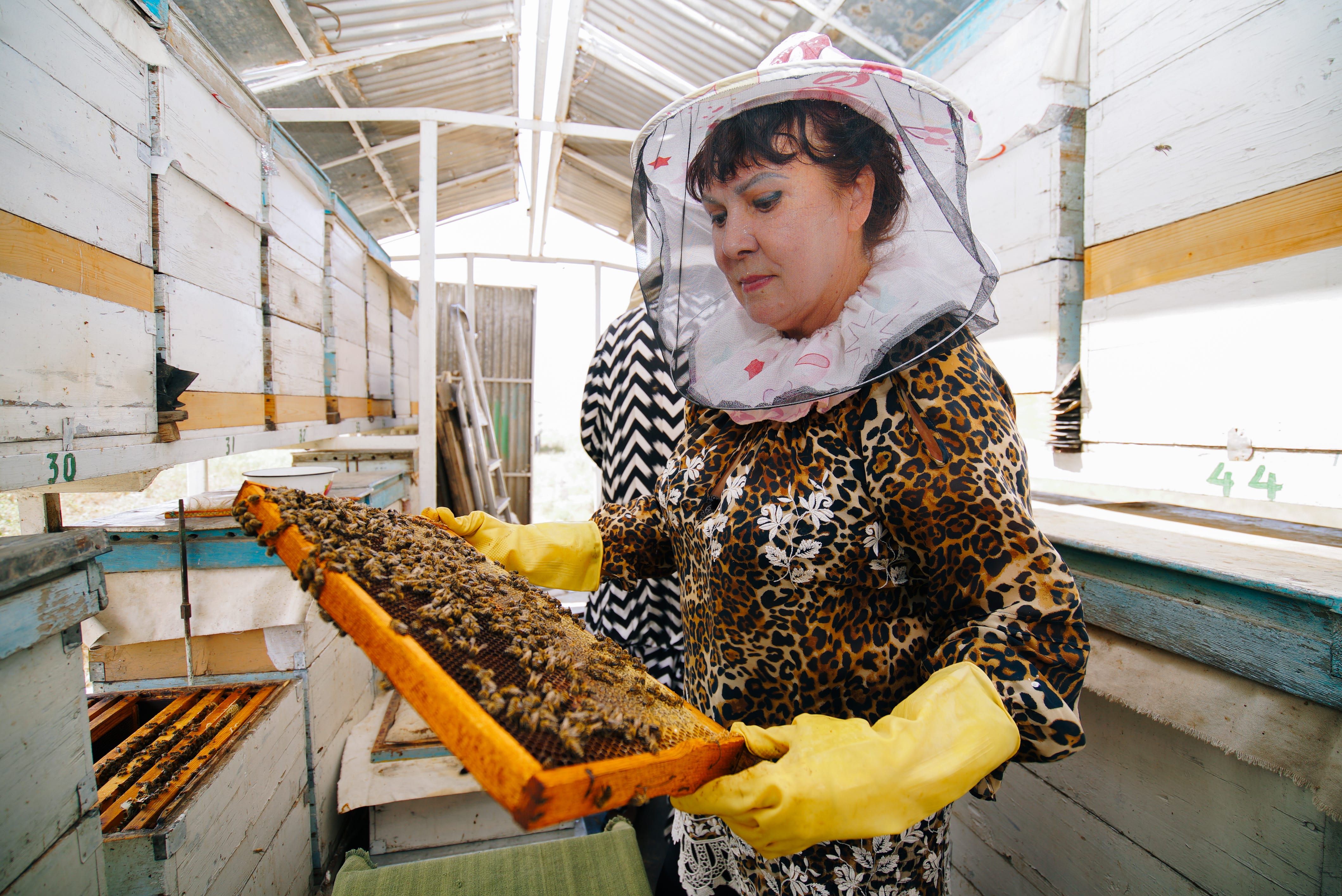
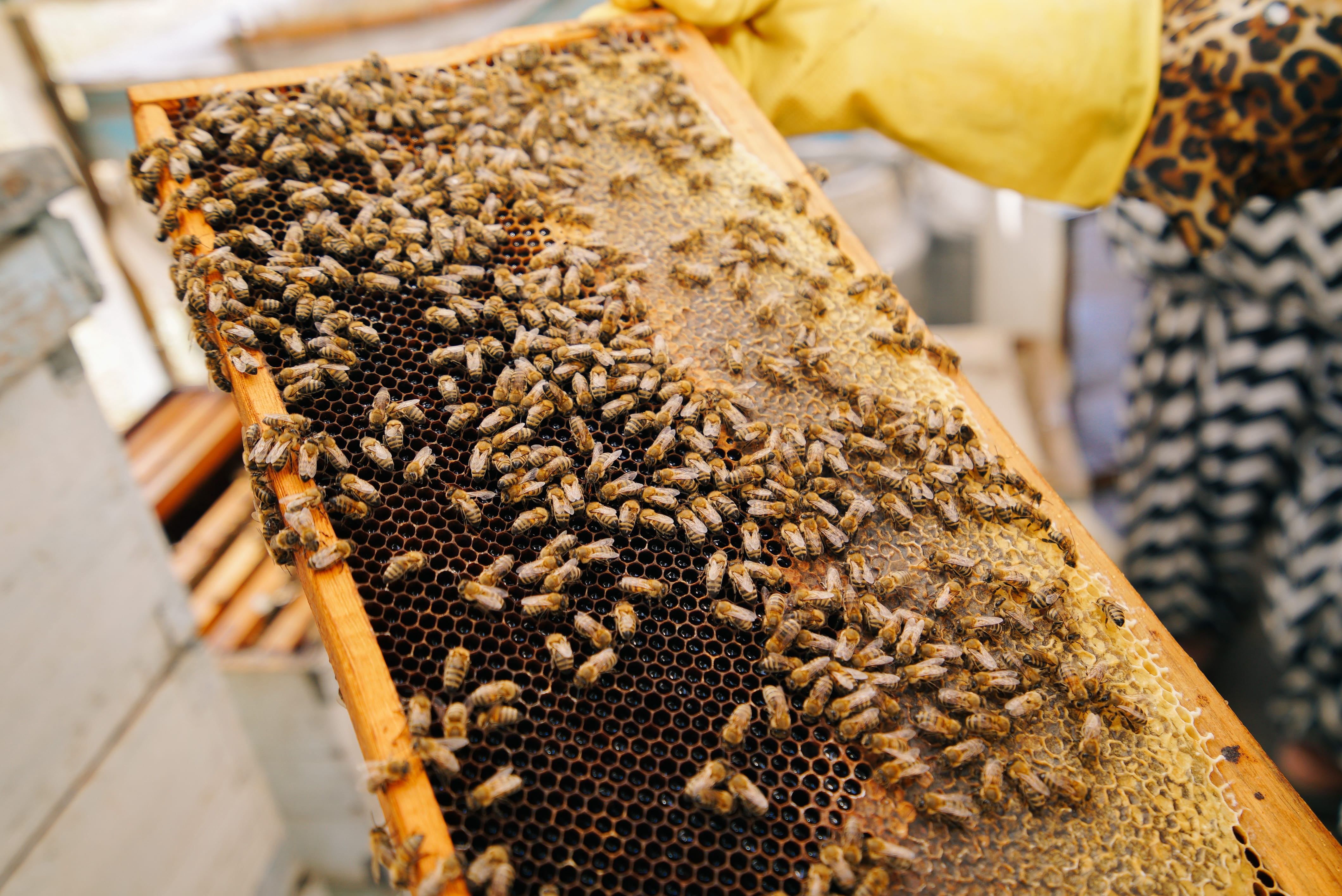
"Beekeepers know that the Karnika breed is one of the best and is famous for its incredible ability to work and to produce high-quality products,"says Lyudmila.
Now the entrepreneur has plans to develop her apiary business further replenishing her queen bees with a new honey breed import from Germany, and she has her own pavilion for that. However, difficulties still abound – the lack of personal trucks for transporting hives to migratory places, and an undeveloped system for selling bee products on the market. Currently, she has regular customers, but Lyudmila acknowledges the need to find new markets.
At the same time, people in Kazakhstan have only recently realized that honey is one of the byproducts of beekeeping, accounting for 10 percent of income. According to Lyudmila, an approach to beekeeping should start from its main function: the pollination of sunflowers, rapeseed, buckwheat, safflower, mustard and fruit trees. Today, only a few agricultural producers and gardeners turn to Kazakh beekeepers for pollination as a paid service.
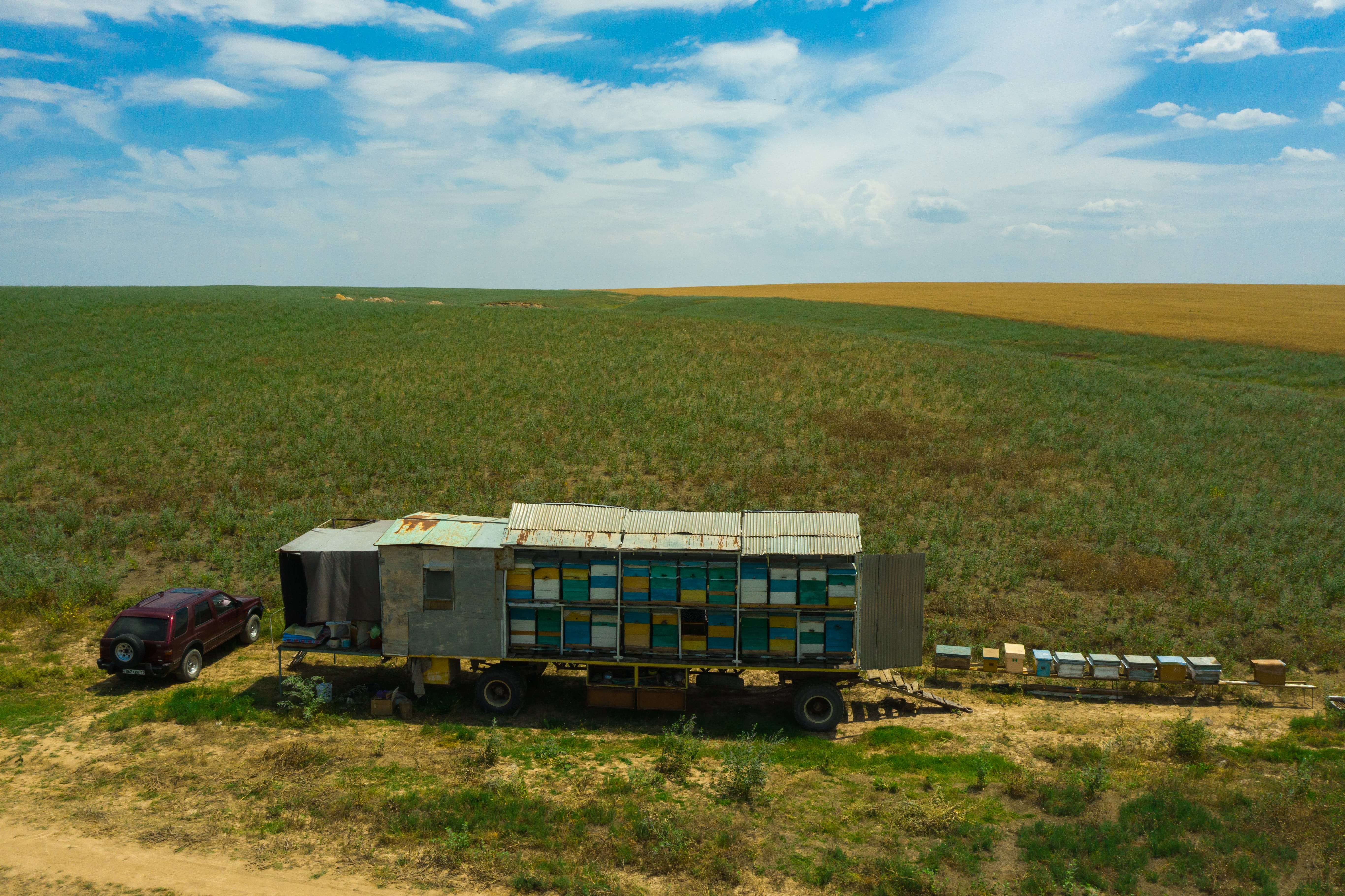
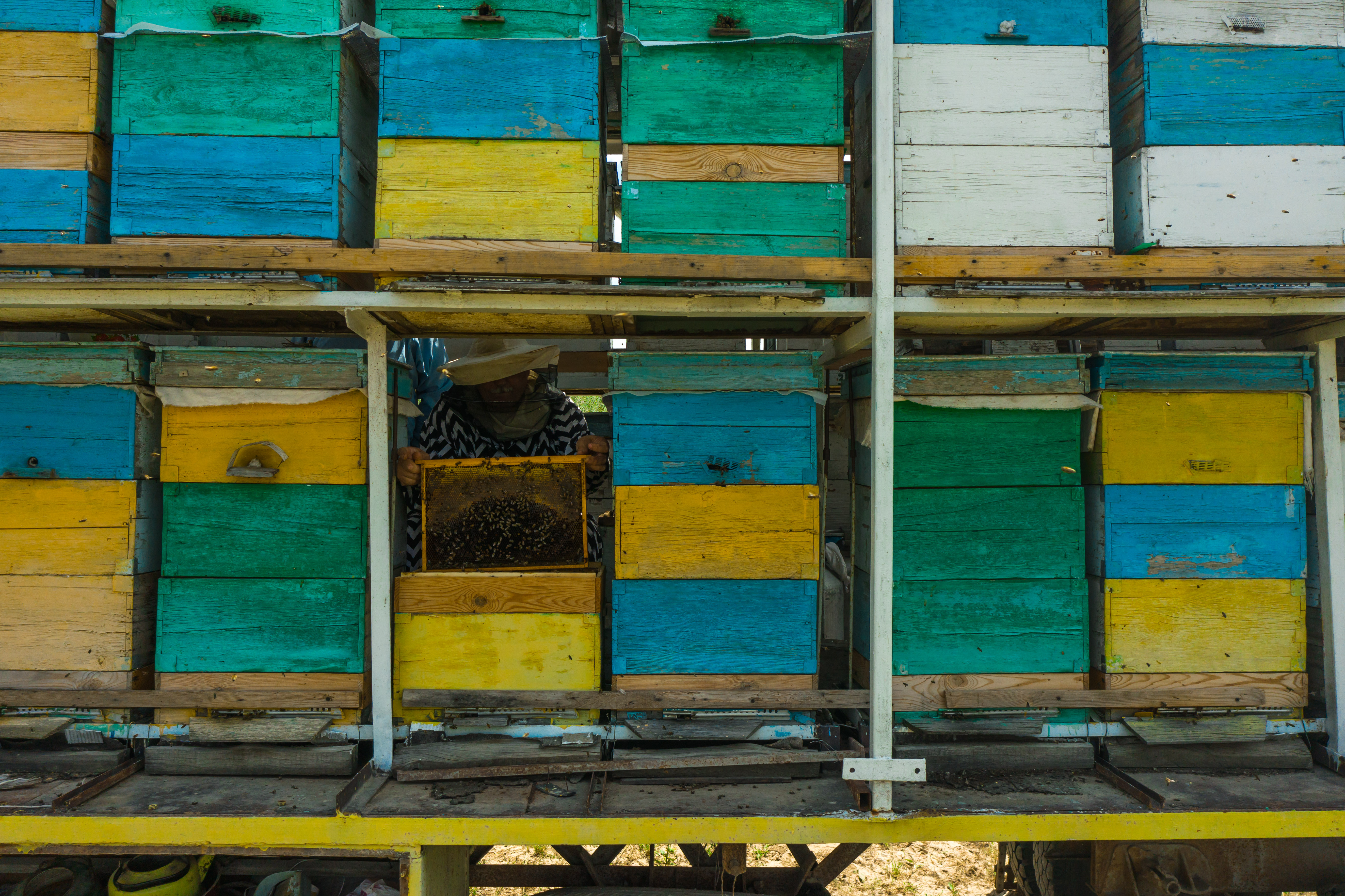
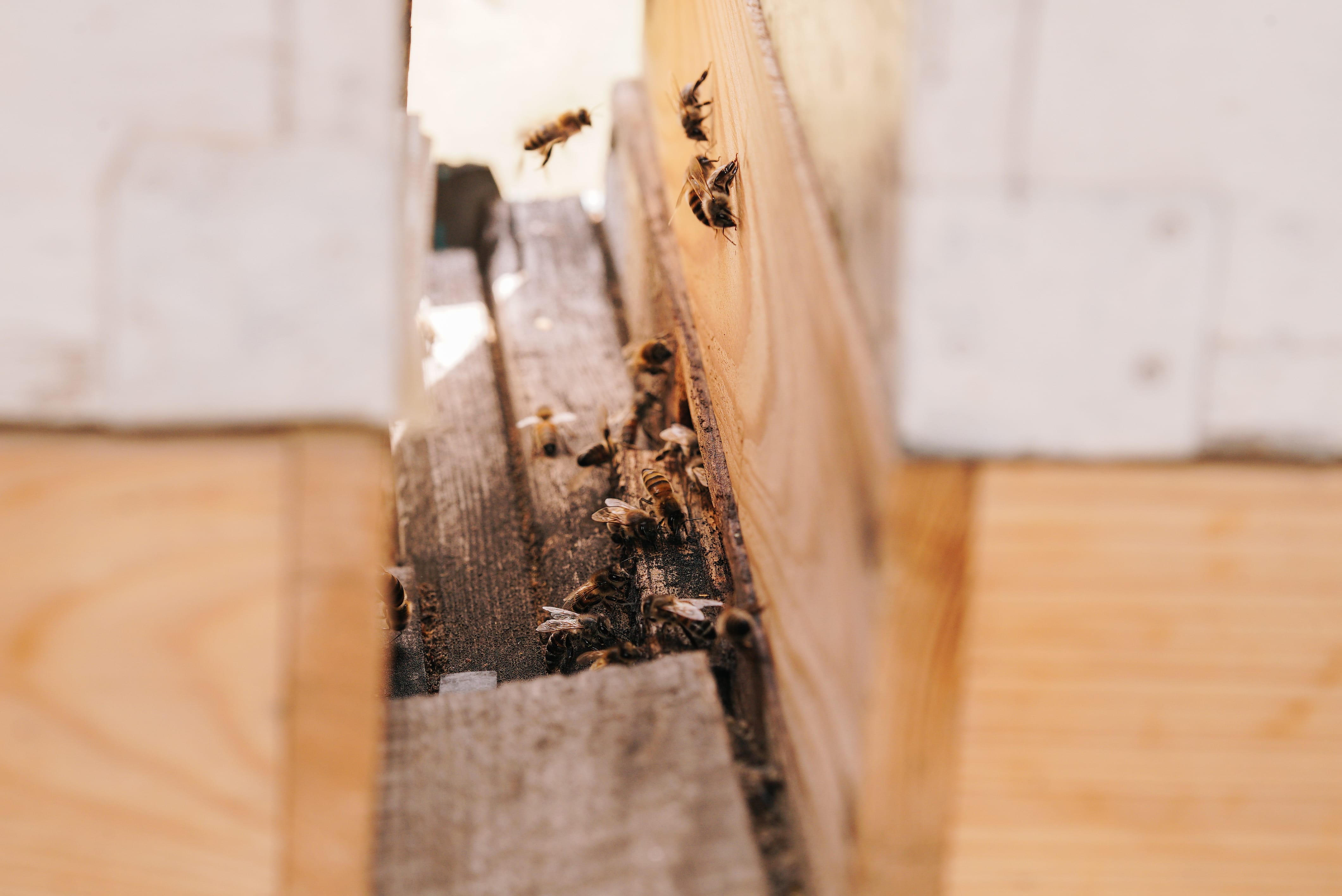
Together with scientists and farmers, UNDP in Kazakhstan, within the framework of the BES-Net project, have developed an approach called the "green honey conveyor", which combines the cultivation of perennial grasses and fruit trees with beekeeping. With this approach, the cross-pollination by bees increases the yield of various crops by 20–50 percent. For example, the yield of sweet clover after pollination increases by 50 percent, and of apple trees by 17-30 percent. Full pollination of fruits and berries also leads to an increase in yields by 30-50 percent. This is the kind of service Lyudmila and her husband Yuri need to develop.
Lyudmila Vysotskaya is one of the 122 entrepreneurs of Kazakhstan who received support under the Eco-Damu Loan Programme. In total, within the framework of two programme phases, implemented from 2014 to 2022, more than 120 existing and start-up entrepreneurs received support totalling more than KZT502 million, including ecotourism, forestry, fishing, hunting and pasture farming, poultry farming, rabbit breeding and beekeeping – all ensuring the rural landscape is abuzz with activities.

 Locations
Locations

